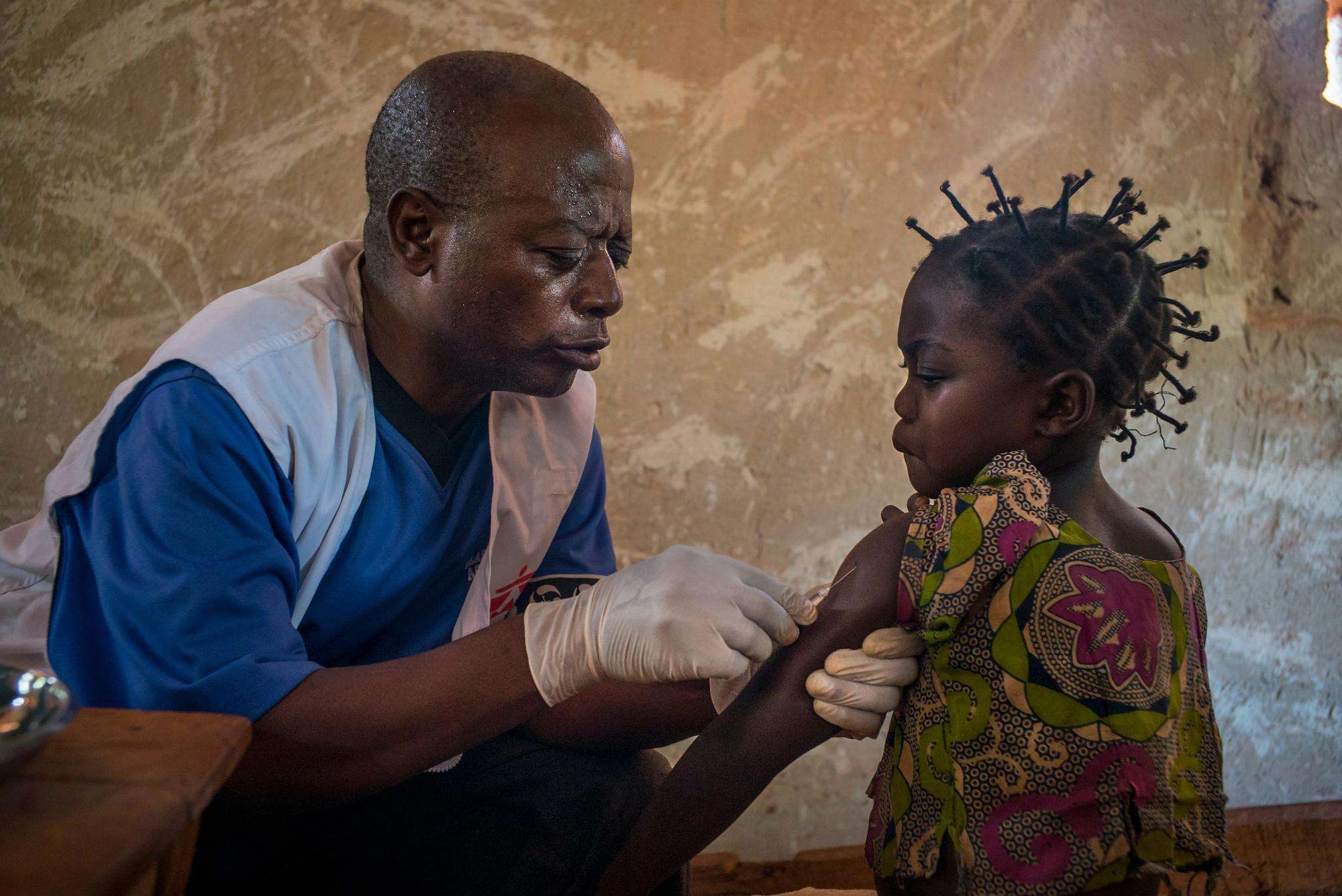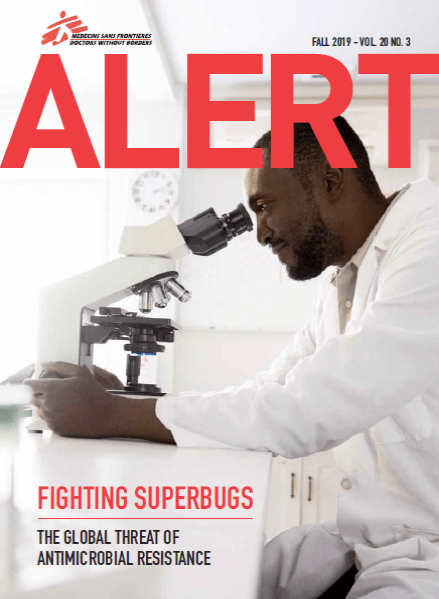Doctors Without Borders/Médecins Sans Frontières (MSF) president Dr. Africa Stewart proudly accepted the 2019 Fries Prize for Improving Health on behalf of MSF in Philadelphia on Tuesday, November 4. Below are her acceptance remarks.
Thank you very much Dr. Monroe and Mr. Fries.
Good afternoon to you all.
My name is Dr. Africa Stewart. I am the president of the board of Doctors Without Borders—USA.
My colleague, Dr. Wesly Toussaint—who heads our antibiotic stewardship program in Haiti—was supposed to deliver remarks to you today. But he was unfortunately unable to travel here.
It is a profound honor to accept the Fries Prize for Improving Health on behalf of Doctors Without Borders/Médecins Sans Frontières (MSF).
We are most grateful for this recognition from the CDC Foundation and the Fries family, and to the American Public Health Association for hosting this wonderful event.
This award will help our colleagues continue to provide humanitarian medical care to people all over the world who otherwise would not have access to it.
In 2018 alone, working in more than 70 countries, MSF conducted more than 11 million outpatient consultations and admitted more than 700,000 people to its medical facilities.
We’re responding to the Ebola outbreak in Democratic Republic of Congo.
We’re caring for people trapped by conflict in Yemen.
We’re vaccinating children all over the world to prevent them from contracting diseases like pneumonia and measles.
Our teams provide high-quality medical treatment to some of the most vulnerable people.
So we are truly humbled to receive this award today, and proud to be recognized for our work.
But caring directly for people who are sick, and preventing illness, is only part of what we do.
Through MSF’s research arm, Epicentre, we conduct clinical and operational research on populations and often-neglected pathologies.
We publicize our medical data and testimonies to influence global health protocols.
This work improves care and prevention for everything from HIV to drug-resistant tuberculosis, and from cholera to malnutrition.
We speak out about what we’re seeing on the ground, advocate on behalf of our patients, and help them tell their own stories.
When we were awarded the Nobel Peace Prize in 1999, we put the award money towards creating the MSF Access Campaign.
For 20 years, the Campaign has advocated and worked to change public policies, to ensure medicines, vaccines, and diagnostics are affordable and available to everyone who needs them.
While we work on many challenging global health issues, one of the threats we’re most concerned about is the growing problem of antimicrobial and antibiotic resistance.
We’re already seeing and treating resistance across our projects.
We see it with people with war-wounds in Jordan. We see it with newborns with weakened immune systems in Pakistan. And we see it with burn patients in Haiti.
At least 700,000 people die each year from drug-resistant diseases.
They’re dying because many antibiotics we’ve been relying on for decades simply don’t work anymore.
And we’re running out of options as pharmaceutical companies don’t see value in developing new antibiotics.
But resistance isn’t just about not having enough drugs or needing new ones.
It’s about preventing patients from getting sick in the first place—and being able to diagnose them quickly so they don’t become sicker.
Yet many health centers throughout the world lack laboratories to test and properly diagnose bacterial infections.
They must rely on the closest lab, which could be hundreds of miles away and take days to return results.
So clinicians are often forced to guess which antibiotic will work.
The MSF project in Port-au-Prince, where Dr. Toussaint works, is the first of its kind in Haiti—only taking care of burn patients.
Many have been burned in cooking accidents, gas explosions, and domestic fires.
Our 40-bed hospital is always full. And infections pose a particular threat.
For those battling them, it's a fight every day to find the most effective antibiotics.
The right antibiotics are critical for both treating patients and curbing resistance in the community.
One way we’re addressing this in Haiti is by piloting a small-scale, portable laboratory called the MiniLab.
MiniLab can be easily used by non-experts with relatively little training.
If the pilot in Haiti is successful, MSF will launch a second pilot in a different part of the world in 2020.
Eventually, it could be implemented more widely to diagnose infections seen in MSF projects, and throughout the larger global health community.
Prevention, of course, extends beyond the realm of antibiotic resistance.
As part of our comprehensive care for women, we treat those suffering from abortion-related complications—on a daily basis.
In 2018 alone, MSF treated more than 24,000 cases.
Unsafe abortion accounts for one in five maternal deaths worldwide.
And studies show that up to eighty to ninety percent of all abortion-related complications in the developing world stem from complications from unsafe abortions—not from spontaneous miscarriage.
In short, this is a medical emergency. And it’s an entirely preventable one.
Restrictions on access to this life-saving service—especially in the Global South—amount to a literal death sentence.
I’m an obstetrician-gynecologist. I’ve assisted women in many countries who otherwise would have gone without basic and lifesaving healthcare.
Every day, an average of 830 women die from pregnancy-related causes. And most of these deaths are preventable too.
Sexual and Reproductive health care is an integral part of the medical care Doctors Without Borders/Médecins Sans Frontières (MSF) provides, including in emergencies and conflict settings.
We are determined to continue this and a wide range of other preventive care services.
And we are most grateful for the support from the Fries Foundation and so many others to help us do so.
Thank you very much.






